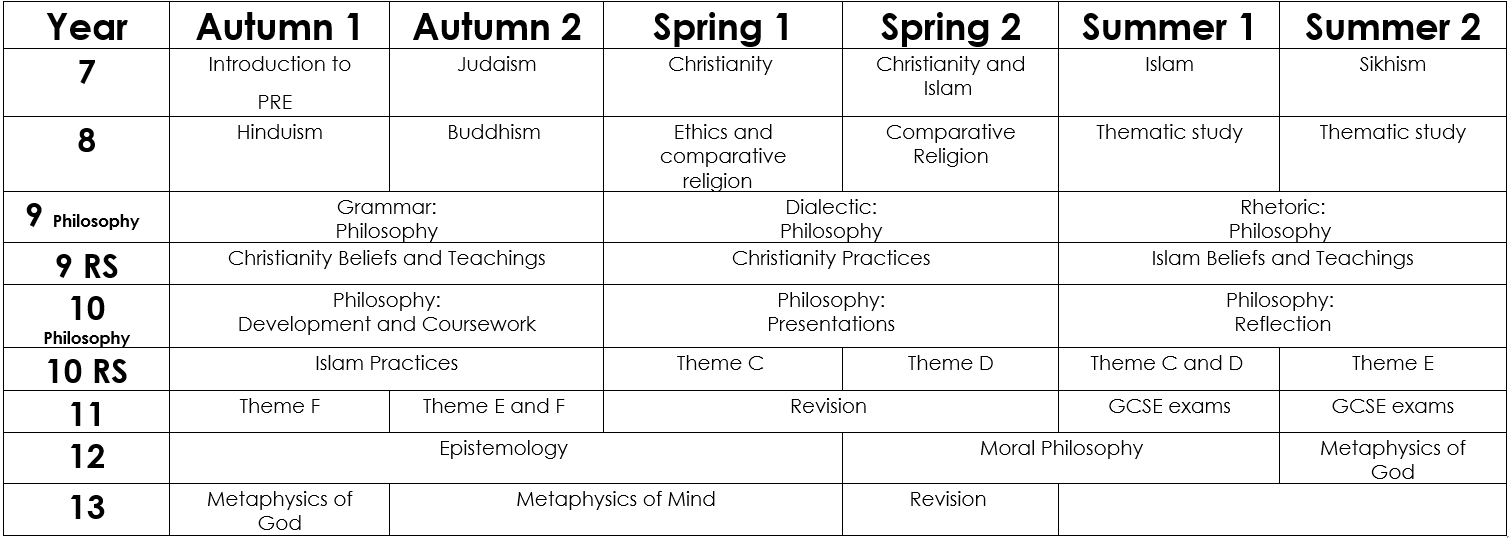Philosophy, Religion & Ethics (PRE)
It is one of the core tasks of PRE to enable each student to develop their own personal belief system. In order to do this students need a basic understanding of how religious and non-religious systems are formed. They need to study how beliefs are expressed, how they can develop and change, and the way they influence individuals and societies.
Without these skills they will be at a disadvantage when it comes to taking advantage of opportunities, dealing positively with controversial issues, and it may leave them unable to treat others with empathy. They can become less able to recognise and challenge stereotypes.
In order to achieve these goals students will need to acquire a level of ‘religious literacy’. They need this to partake in informed discussion about complex beliefs systems. They will need to be able to understand, and question, the accuracy of claims about different belief systems, regardless of whether they are themselves religious or not.
Religious Literacy means that students can:
- investigate belief systems through varied experiences, approaches and disciplines
- reflect on and express their own ideas, and the ideas of others, with precision and clarity
- become increasingly able to respond to beliefs in an informed, rational and insightful way.
We should aim to challenge all misconceptions that are based on claims that are unwarranted by high standards of academic scholarship. We need to ensure students, and staff, understand the nature of knowledge to reduce misunderstandings about the credibility of religion, e.g., ‘science is about facts; religion is about opinions’. In order to do this we must ensure students are aware of how we obtain ‘knowledge’.
Ofsted refers to 3 types of knowledge in PRE, they refer to three different types of subject-specific knowledge that pupils learn in RE. It says each of these is powerful and should not be confused with “mere facts”. They speak of them as ‘pillars of progression’ within RE. Progression in PRE involves securing increased knowledge in these categories:
- Substantive knowledge: knowledge about various religious and non-religious traditions
- Ways of knowing: pupils learn ‘how to know’ about religion and non-religious beliefs
- Personal knowledge: an awareness of own presuppositions and values about belief systems
We do not have early entry GCSE at Saracens because students are shown to perform considerably worse than their peers, especially students with low prior attainment.
Key Stage 4 course: AQA GCSE Religious Studies A Islam and Christianity
Key Stage 5 course: AQA A Level Philosophy
Subject lead – Ms Wilson MA PGCE BA (Hons)



